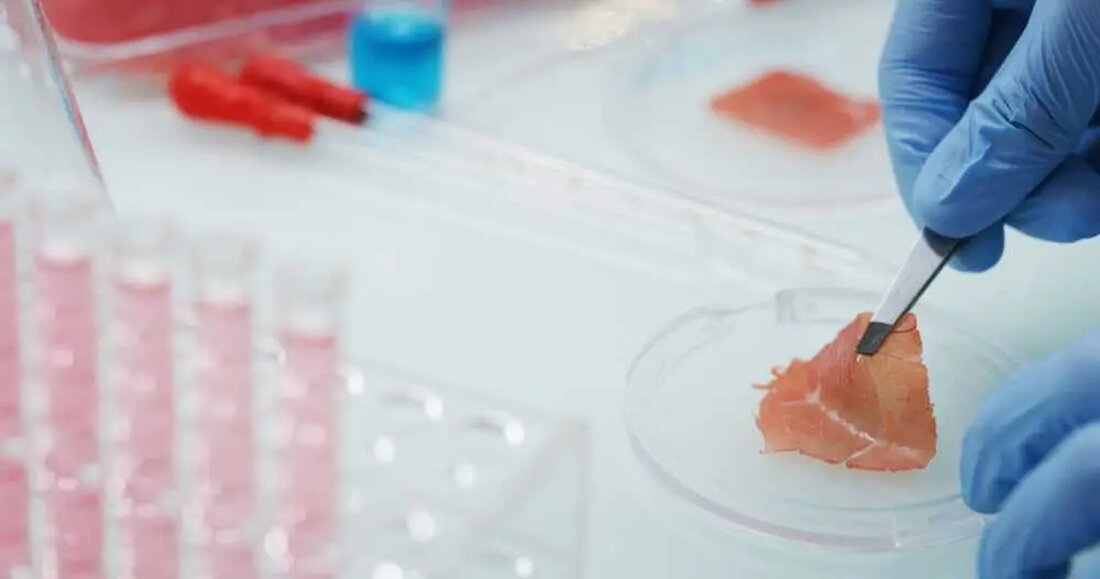The Ouroboros Steak: An extraordinary work of art and an ethical challenge for the cultured meat industry
## The Cultural Statement of Cultured Meat Developed by a team of American scientists, the Ouroboros Steak offers a glimpse of what meat made from human cells might look like. Despite its bold premise, it is not intended for actual consumption. Instead, it represents an avant-garde statement against the use of fetal bovine serum (FBS) – a protein-rich growth fluid derived from calf fetuses, which are often slaughtered for use in the meat industry. Andrew Pelling, one of the scientists behind the project, raised concerns about FBS, highlighting both the financial costs and the costs in terms of...

The Ouroboros Steak: An extraordinary work of art and an ethical challenge for the cultured meat industry
## The cultural statement of cultured meat
Developed by a team of American scientists, the Ouroboros Steak offers a glimpse of what meat made from human cells might look like. Despite its bold premise, it is not intended for actual consumption. Instead, it represents an avant-garde statement against the use of fetal bovine serum (FBS) – a protein-rich growth fluid derived from calf fetuses, which are often slaughtered for use in the meat industry. Andrew Pelling, one of the scientists behind the project, expressed concerns about FBS, highlighting both the financial costs and the costs in terms of animal lives.
## A growing market, but still unexplored territory
Although lab-grown meat has not yet received approval for commercial sale, its potential is undeniable. The market is expected to be worth an impressive $572 million by 2025, up from $206 million. The process provided for the Ouroboros Steak DIY kit is simple: individuals could collect their cheek cells with a cotton swab and deposit them onto mushroom mycelium scaffolds. After being raised in a controlled environment and fed human serum, a steak could theoretically be ready to eat after three months.
Grace Knight, the project's industrial designer, emphasizes the sustainability of using human blood instead of FBS. Furthermore, she clarifies that the concept is not technically cannibalism, as it challenges societal norms and ideas regarding the consumption of one's own cells.
## The Environmental Impact of Cultured Meat
Cultured meat, also known as lab-grown meat, has been hailed as a revolution in the food industry. Its potential to reduce animal suffering and provide a more environmentally friendly alternative to traditional meat production methods has attracted significant attention. The Ouroboros Steak, which has its roots in this industry, goes one step further and represents a critique of the environmental arguments put forward by the broader cell-based meat industry.
The use of FBS has been a controversial topic within the cell-cultured meat community. Critics argue that this practice undermines the industry's claim to be a sustainable and ethical alternative. However, a study from Frontiers suggests that lab-grown meat may actually be more climate-friendly, although comprehensive research is still pending.
## Your meat, your choice
Introducing the DIY steak concept isn't just about introducing a new source of protein; it is a moving commentary on self-sufficiency and ethics. If the kit becomes a reality, individuals would be able to know the exact origins of their meat and ensure it is ethically sourced and produced.
However, the crucial question remains: Even if it's not technically cannibalism, would you be willing to eat meat cultured from your own cells? Knight argues that using human blood is not only sustainable but also economical. In a world struggling with food safety and sustainability, such radical ideas could pave the way for innovative solutions.
## The way forward
The Ouroboros Steak, while polarizing, is a testament to the willingness of scientists and designers to challenge the status quo. Although lab-grown meat hasn't landed on our plates yet, it has already sparked discussions about the future of food. In a world where sustainability is a top priority, it is important to look beyond traditional methods and explore all possibilities, even if they take us out of our comfort zone.
In summary, while Ouroboros Steak may not be on everyone's menu anytime soon, its existence raises important questions about sustainability, ethics, and the boundaries we may need to push to ensure a future-proof diet.

 Suche
Suche
 Mein Konto
Mein Konto
